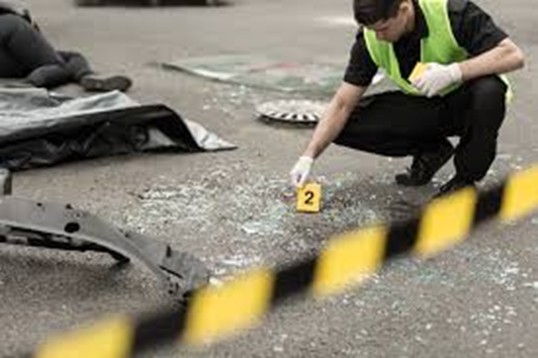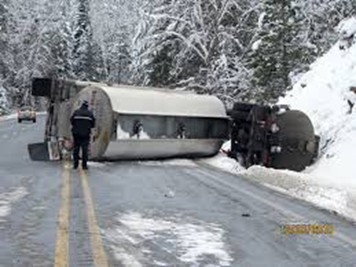
Handling litigation involving commercial truck accidents introduces a range of complexities not typically found in standard motor vehicle cases. From the immense size and mechanics of commercial vehicles to the intricate web of federal regulations and industry-specific protocols, these cases require a depth of knowledge that goes well beyond general legal expertise. Without the guidance of an expert trucking witness, attorneys risk making critical errors that can undermine their case strategy and weaken their position in court.
Commercial motor carriers are subject to strict and complex regulations under the Federal Motor Carrier Safety Administration (FMCSA), as well as state-specific rules. These regulations cover everything from hours-of-service (HOS) and vehicle maintenance to driver qualifications and cargo securement.
Attorneys unfamiliar with these rules may overlook key regulatory violations that can demonstrate negligence. Conversely, they may also allege violations where none exist, weakening their credibility in court.
An experienced witness with industry knowledge can identify relevant regulatory breaches, interpret FMCSA guidelines correctly, and clearly explain their significance to the jury. This insight ensures that the legal team builds a case grounded in actual safety standards and not assumptions.
In trucking accidents, much of the most valuable evidence—like electronic logging device (ELD) data, driver qualification files, maintenance records, and dashcam footage—is in the possession of the motor carrier. This data is often overwritten or deleted after a short period if not preserved through a timely litigation hold or discovery request.
Lawyers may delay preservation letters or fail to ask for the right documents during discovery, resulting in lost or incomplete evidence.
A knowledgeable witness can guide the legal team on what records are essential and advise on the timing and method of preservation. This ensures that nothing critical is missed or lost due to inexperience.
Mechanical failure is a major contributing factor in many commercial vehicle accidents, yet it’s often under-investigated in litigation. Components such as brakes, tires, lights, and trailer couplings must be maintained according to stringent standards.
Attorneys may focus primarily on driver behavior without evaluating the condition of the vehicle or reviewing its maintenance logs.
A professional familiar with vehicle inspection procedures can identify overlooked mechanical issues, interpret maintenance records, and determine if a failure to maintain the truck contributed to the crash. This can add a critical layer to the liability analysis.
Driver fatigue is a leading cause of trucking accidents, and the FMCSA regulates how long drivers can be on the road to mitigate this risk. Violations of HOS rules often go unnoticed by attorneys who are unfamiliar with logbook analysis and ELD data interpretation.
Failing to analyze driving hours, rest periods, or falsified logbooks - key evidence that can point to negligent or reckless behavior.
A qualified witness can audit ELD data and driver logs, identify discrepancies, and show how fatigue may have affected a driver’s performance. Their findings can help prove that the company or driver knowingly operated outside of legal limits.
Trucking accidents often involve dynamics that are drastically different from passenger car collisions. The weight of the vehicle, load distribution, braking distance, and impact force must all be considered when determining what happened.
Relying solely on police reports or eyewitness accounts without a proper scientific reconstruction of the accident.
Experts use physical evidence, vehicle inspections, black box data, and software modeling to recreate the sequence of events. Their reconstructions offer juries a clearer picture of causation and fault - something lawyers alone typically cannot provide with accuracy.
Even if a trucking company hasn't violated a specific regulation, it may still be held liable for failing to follow accepted industry standards or internal safety protocols.
Attorneys may focus only on black-and-white regulatory violations and miss opportunities to show negligence based on industry norms.
A witness with hands-on industry experience can explain what a “reasonable” company or driver would have done under similar circumstances. This kind of testimony can be pivotal in proving negligence even when formal rules were technically followed.
Trucking companies often bring in their own expert witnesses to defend their operations, vehicles, or drivers. Without comparable expertise, plaintiff attorneys may struggle to challenge this testimony effectively.
Failing to spot misleading claims, flawed methodologies, or biased opinions presented by the defense expert.
By supporting the attorney with insights and strategy, a credible witness can help prepare pointed questions for cross-examination or even rebut the opposing expert directly, reinforcing the case's integrity.
Many truck accident cases involve more than just individual driver error—they often stem from systemic issues like poor hiring practices, inadequate training, or pressure to meet unrealistic delivery schedules.
Focusing solely on the driver’s behavior and missing signs of broader corporate responsibility.
A seasoned witness can identify patterns of negligence at the organizational level and explain how they contributed to the crash. This analysis can be instrumental in increasing the scope of liability and potential damages.

Trucking litigation involves complex concepts that may overwhelm or confuse jurors, especially when attorneys present them without simplification or context.
Failing to communicate technical information in a clear, relatable way.
A well-spoken witness bridges the gap between complex industry knowledge and lay understanding. Using visuals, analogies, and plain language, they help jurors grasp key points and feel confident in their verdict.
Without a thorough understanding of trucking regulations, maintenance obligations, and safety protocols, lawyers may not fully recognize the strength—or value—of their case.
Accepting early settlements that don’t reflect the full extent of liability or damages due to a lack of expert input.
By providing an in-depth analysis of fault and regulatory failure, a credible witness helps legal teams quantify damages more accurately and argue for fair compensation, often significantly raising the case's value.
Handling a trucking accident case without a knowledgeable expert witness is a risky endeavor. From misinterpreting regulations to missing hidden evidence or failing to communicate key findings effectively, the absence of industry expertise can weaken even the strongest claims.
Expert witnesses serve as both educators and strategic allies, helping attorneys build robust, well-supported cases that stand up in court. Their insights not only provide clarity in complex matters but also deliver the credibility and depth needed to influence judges and juries alike.
For any attorney navigating the complexities of trucking litigation, partnering with a qualified expert isn’t just helpful - it’s essential to achieving justice for their clients.